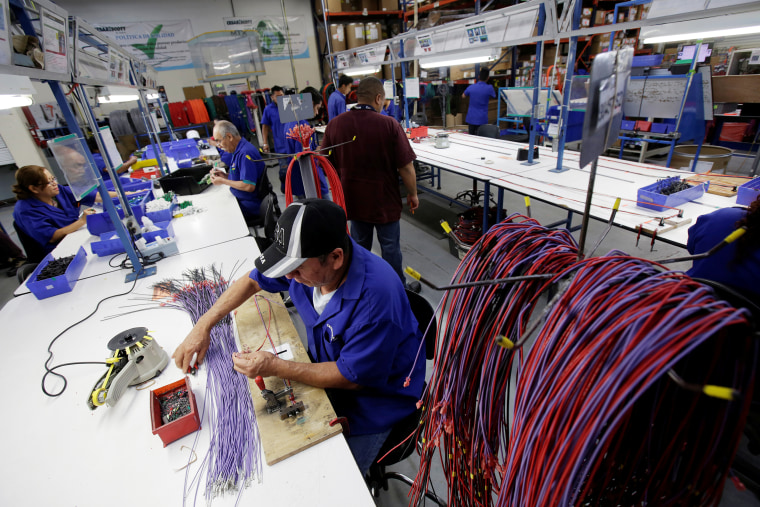President Donald Trump's intention to slap tariffs on imports from Mexico starting Monday will primarily hurt Americans, say many experts in economics, political science, and diplomacy.
Trump announced last week he would impose a growing set of tariffs on Mexico to force that country to stem the flow of Central American migrants and asylum seekers trying to enter the U.S. If levied, the tariffs begin on Monday at 5 percent, and increase by 5 percent every month until they total 25 percent — or until Trump is satisfied with Mexico's border efforts.
At question is an international policy of "country of first asylum," which says the first country a refugee reaches should be the one to process the asylum request. "For refugees in Central America, Guatemala in particular, it would be Mexico," said John Caulfield, a retired diplomat with extensive experience in Latin America and now a consultant.
Addressing country of first asylum is "very complicated and technical," Caulfield said, noting that it is best done through negotiation and planning with other governments.
However, Trump has decided to "punish a country with tariffs to the point that they will change internal policies without any understanding of who bears the burden of the policies," said Anson Soderberry, a professor of economics at Purdue University who specializes in international trade.
Soderberry refers specifically to the economic trade terms of passthrough and burdens, which delineate where the imposition of the tariffs actually lands and who pays them. Tariffs are a form of consumption tax, like a national sales tax, only on specific goods from particular countries.
In 2018, the U.S. imported $346.5 billion in goods from Mexico, according to the Office of the U.S. Trade Representative. At even 5 percent, that would be a tax of $17.3 billion. Unless manufacturers in Mexico decide to absorb the costs themselves — which has virtually no chance of happening — the impact will be split among importers, wholesalers, retailers, and consumers, with the burden significantly if not entirely passed on to the latter.
With a tariff of 25 percent, a number that could be seen by October, the tax would be $86.5 billion annually, or $264.36 for every woman, man, and child in the U.S. The impact would be felt most heavily on goods like cars. A $40,000 auto would see a $1,500 price jump with a 5 percent tariff, or $7,500 at 25 percent.
The impact could extend beyond consumer prices and negatively affect jobs. Under NAFTA, a number of industries in the U.S. extend north and south into Canada and Mexico, with work on products split up and parts going back and forth, sometimes multiple times, for different stages of assembly.
"These minor adjustments to supply chain and production are potentially not that distortive," Soderberry said. "But if it gets to the point that you have to make a big shift and move a plant, then what do you do? Then it can be 10,000 jobs that are lost. That's a pretty big effect."
The potential costs in money, jobs, and businesses are immense. So how effective is the tariff strategy? "The current administration seems to believe that tariffs are an all-purpose stick that can be used to beat countries with," said Douglas Nelson, a professor of economics at Tulane University and an expert in trade. "There's no obvious direct connection between tariffs and immigration. If those are your goals, there are many more efficient ways of going about those goals."
"Usually when countries use tariffs, it's to protect their domestic goods," said Christina Fattore, associate professor of political science at West Virginia University. Instead, the goal is domestic politics and the 2020 presidential election, with immigration issues attractive to his base, particularly when spun as a reason for job losses. Trump's policies have so far not returned well-paying manufacturing jobs to swing states like Michigan, Pennsylvania, and Wisconsin.
"Mexico is an easy target for Trump," Fattore said. "He still thinks he can reach his base by targeting Mexico through not just immigration policy but economic policy. People who don't have time to do the research are going to believe the president, especially if they voted for him."
